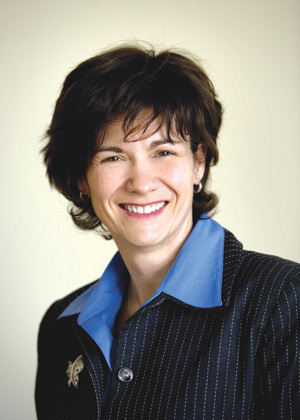The Law Society of Upper Canada and thevoluntary legal associations in the province have to work together to help solepractitioners and small firm lawyers flourish, say the president the OntarioBar Association and chairman of the Country and District Law Presidents' Association.
 In their responses to the LSUC task force
report on sole and small firm lawyers, both associations agree that the issue
deserves open discussion and not just another layer of bureaucracy.
In their responses to the LSUC task force
report on sole and small firm lawyers, both associations agree that the issue
deserves open discussion and not just another layer of bureaucracy.
Convocation voted in April to defer voting on
the recommendations contained in the task force report until the profession was
consulted, and invited submissions from voluntary law associations. One of the
more controversial recommendations involves developing a unit dedicated to the
target group within the law society's professional development and competence
department.
Heather McGee, president of the OBA, says the
issue isn't necessarily one of professional development or competence for the
52 per cent of lawyers who fall into the target group.
"The theme seems to be that this is not a
concern with the target group practitioners not having substantive or practice
skills, it's more about the economics of practice and it's the market that is
creating the pressure on these small businesses rather than an under-resourcing
of them or a lack of competence or viability," she says.
"The approach we took is that we don't need
another layer of regulation on these smaller firms. What we need is a really
open discussion about the future of small firms as it dovetails with a lot of
other issues."
Ormond Murphy, chairman of CDLPA, agrees with
McGee and says the creation of a new department at the LSUC is not the answer.
"I think the theme that we tried to portray was
that creating a new bureaucracy at the LSUC is not necessarily going to
accomplish very much and, in fact, many of things that they are wanting to do
and trying to do are really already being done by local law associations."
Some of the OBA's and CDLPA's recommendations
include improving legal aid funding; introducing, enacting, and enforcing
legislation concerning paralegal regulation; promoting the role of lawyers in
mortgage lending to financial institutions; promoting pre-paid legal service
plans to the public; and communicating job opportunities in non-urban centres
to new lawyers at law schools and through the bar course.
McGee says the LSUC, all the legal
organizations in the province, and the law schools need to look at the shortage
of sole practitioners and small firm lawyers in non-urban centres from three
angles:
· Economically:
what can we do as lawyers to improve our ability to run small businesses?
· Demographically:
the lack of younger lawyers entering the target group, high student debt, the
urbanization of the profession, and the lack of articling positions in rural
areas.
· Communication: communicate the value of legal services in the
communities in which they live and practise.
In CDLPA's response to the report, the
association highlights the vital role that local
"A very big issue in the budget is the funding
for LibraryCo. On the one hand the LSUC is being very impecunious when it comes
to giving money back to the local law associations and to support the local law
libraries and we see that as a priority," he says.
"In writing that response I think it's very
important for the benchers when they strike a committee, there are a lot of
people on that task force that didn't really understand what local law
associations do for the target group," he says. "Likewise, when we're talking
about financial matters there are a lot of benchers who don't understand the
importance of local law libraries and the proper funding of those libraries,
how important that is to the target group."
However, last week Convo-cation voted to increase
the LibraryCo levy to $219 from $206 to achieve its 2006 budget without having
to dip into its reserve fund. How that $13 increase per member, coupled with a
general fee increase of $55 will impact LSUC members in the target group
remains to be seen.
Both McGee and Murphy say they appreciate the
task force report for highlighting the important issues and putting numbers to
the anecdotal evidence they have both heard.
As well, both say current LSUC Treasurer George
Hunter has been eager, sincere, and open to hearing the associations' concerns
and seems committed to effecting change.
"This treasurer has been very open in terms of
working with our associations, other associations, and the other major law
associations," Murphy says.
"In terms of accomplishing a lot of the things
that were set out to be accomplished by the recommendations in the task report,
if the LSUC were closer with local associations, for fairly minimal cost we
could probably accomplish those things," he says.
McGee agrees and says if the LSUC works
together with the law associations on this complex and important issue, "I
think we've got a very bright future ahead."







